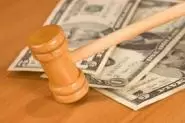Auction Fever – Catch It!

But with this opportunity comes some risk.
Most often the risk takes the form of undetected damage to the piece. Naturally the best way to minimize your risk is to do a thorough inspection of the piece in person. When that is not possible, you should ask any friends who will be attending to inspect it for you.
In addition, always deal with a reputable auction house that will provide you with a detailed description and additional photographs, whose staff will answer your questions quickly and directly, and that will stand behind anything they sell.
We also asked Jerry Cohen, a partner at David Rago’s Early 20th Century Auctions (http://www.ragoarts.com), to share with us his advice on buying at auction. Here is what Jerry suggested:
1.) Do some on-line research before the sale to see what similar items are selling for at auctions and in shops.
2.) Based on your budget, determine how important each item on your list is to you, and what your desired items typically sell for. Then set bid limits for yourself. You don’t have to stick with them, but unless you have an unlimited budget, don’t go too far above your limit. Take into account that auction houses charge a buyers’ premium that is added to the bid price. Factor that, as well as possible shipping charges, into your bids.
3.) Prices at auction are determined by the bidders, and this means there will be some bargains as well as some high prices. The more flexible you can be, the better chance you have of getting a great deal.
4.) Familiarize yourself with the auction house and their reputation. Although problems are generally rare, they are possible, and you want to make sure you are dealing with a business that will responsibly deal with any problems should they occur.
5.) Don’t hesitate to call or speak with the auctioneer or in-house expert for detailed information about an item, as its value is generally dependent on its condition.
While on-line and over-the-phone bidding is becoming more common, don’t forget the educational aspect of attending an auction in person. The preview gives you the chance to inspect and study hundreds of pieces, plus the opportunity to meet new friends who share your enthusiasm for Arts & Crafts and who can be valuable sources of information on the pieces you collect.
Good Luck!
– Bruce

